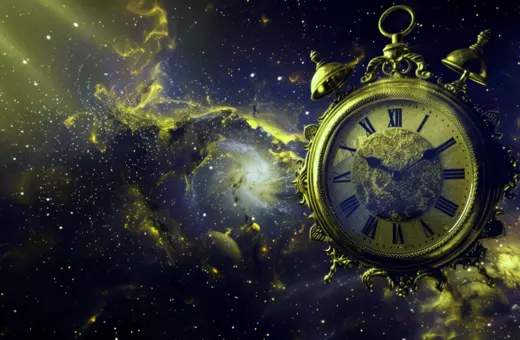It has become a dominant view in the philosophy of time that Einstein’s Theory of Relativity showed that the passage of time is an illusion, and that in fact the past, present, and future all coexist. But the philosopher Henri Bergson, a contemporary of Einstein’s, was a strong critic of the theory’s portrayal of time. Bergson emphasised the cultural and technological context in which Einstein formulated relativity and argued that a theory of time that relies on clocks but doesn’t understand their history and significance, is incomplete, writes Jimena Canales.
As you explore in your book The Physicist and The Philosopher, there was a contemporary of Einstein’s, the philosopher Henri Bergson, who didn’t buy the relativistic picture of time. What was Bergson’s main objection?
The relation between Einstein and Bergson is a complicated one with many wrinkles. It was personal, political, and philosophical. When I began writing my book, the accepted historical narrative claimed that Bergson had misunderstood Einstein’s theory of relativity and that he had made a crucial mistake in his book Duration and Simultaneity in his interpretation of what became known as the “twin paradox” in the theory of relativity. Bergson indeed repeatedly ascribed a “fictional” and “phantasmagoric” status to one the traveling twins/clocks. If one reads Bergson’s book in terms of physics, then one can certainly claim that he made a mistake in it.
But there was much more to Bergson’s critique of relativity than this reading allows for. Bergson repeatedly claimed that he had no objections to any of the facts of Einstein’s theory and that his contributions were of a philosophical nature. (Einstein himself wrote numerous letters promoting the view that the philosopher was mistaken.)
___
Bergson’s objections were therefore more than simply objections about the Einsteinian notion of time. They were about the role of science vis-à-vis other forms of knowledge.
___
Bergson’s main objection against Einstein’s work was that it was smuggling in a certain metaphysics into science, without acknowledging its presence. This metaphysics was nothing extraordinary—just the contrary—it was basically run-off-the-mill materialistic. Bergson ended his controversial and complex book with a simple sentence, “Einstein is the continuator of Descartes.” Bergson’s objections were therefore more than simply objections about the Einsteinian notion of time. They were about the role of science vis-à-vis other forms of knowledge. Bergson felt he had a “duty” to defend these other forms of knowledge from being snuffed out by some of the claims made in the name of science. “The idea that science and philosophy are different disciplines meant to complement each other,” he wrote, “arouses the desire and also imposes on us the duty to proceed to a confrontation.”
Philosophy has a long tradition, going at least as far as Plato, that argues that the way the world appears to us isn’t the way the world really is. Why should we take Bergson’s complaint that Einstein’s time makes a fool of our pre-scientific view of time seriously? Why isn’t it the case that Einstein somehow revealed the true nature of time, underneath this illusory, everyday view of time?





















Join the conversation